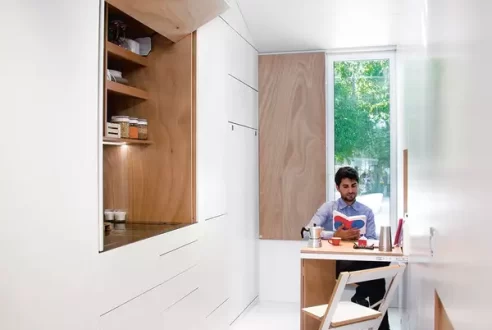Moving out of the dorms and into an apartment can be a big step for college students. It’s an exciting time, marking a transition into adulthood and independence. But it can also be stressful and overwhelming, especially when it comes to finding the right apartment. There are many things to consider, such as location, cost, and amenities. Plus, for many students, this will be the first time they have ever rented an apartment.
As a college student, you may have a limited credit history, a lack of rental history, and limited income, making it difficult to find an apartment that meets your needs and budget. But don’t worry; with a little bit of planning, research, and preparation, you can find the perfect apartment. In this blog post, we will be providing you with our tips to rent an apartment as a college student to help you navigate the process and make it as stress-free as possible.
1. Start Early

Starting your search for an apartment early is key. This will give you plenty of time to find the perfect place and also ensure that you don’t miss out on your preferred location or amenities. It’s important to start looking for apartments at least a few months before your move-in date.
This will allow you to compare different apartments and neighborhoods and make sure you find the best deal. Additionally, starting your search early will give you an opportunity to visit different apartments and get a feel for the different neighborhoods you are considering. This will help you to make an informed decision when it comes to choosing the right apartment and location.
2. Get a Co-Signer
Many landlords require a co-signer for college students who are renting an apartment for the first time. A co-signer is someone who will guarantee the rent will be paid on time and that the apartment will be taken care of. This can be a parent, guardian, or another responsible adult.
Having a co-signer can make it easier to get approved for an apartment, especially if you have limited credit or income. It’s important to note that not all landlords require a co-signer, so it’s worth checking with the landlord or property manager before you begin your search. But having a co-signer can give you a competitive edge and make it easier to get approved for the apartment you want.
3. Make a Budget

Decide how much you can afford to spend on rent, utilities, and other expenses. Renting an apartment is not cheap, so making a budget is important before you start looking. Keep in mind that you will also need to budget for things like furniture, bedding, and kitchen supplies. Be realistic about your budget, and don’t stretch yourself too thin.
To help with budgeting, you can use online calculators or budgeting apps that can help you to see how much you can afford to spend on rent and other expenses. Additionally, you can also look for apartments that offer amenities such as a gym or pool, which can save you money on gym or pool memberships.
4. Read the Lease Carefully
Before signing a lease:
- Make sure you read it carefully and understand all the terms and conditions.
- Pay attention to things like the length of the lease, the amount of rent, and the security deposit.
- Make sure you understand the rules about subletting and what happens if you need to break the lease early.
- Make sure you understand the policy on pets and any other restrictions that may be in place. If there’s anything you don’t understand, don’t hesitate to ask the landlord or property manager for clarification.
5. Move-In Inspection

Before you move in, make sure you do a move-in inspection. This means walking through the apartment with the landlord or property manager and noting any damages or issues that need to be fixed. Take pictures of any damages or issues and make sure the landlord or property manager is aware of them.
This way, you won’t be held responsible for damages that were already present when you moved in. Additionally, it’s important to keep copies of the inspection and any other paperwork related to your move-in, such as the lease and security deposit receipt, in case you need to refer to them later.
Final thoughts
Renting an apartment as a college student can be challenging, but with the right preparation, research and planning, it can be a great experience. By following these tips, you can find an apartment that meets your needs, budget, and preferences. Remember to start early, find a co-signer, make a budget, check out the neighborhood, read the lease carefully and do a move-in inspection.
With these tips, you’ll be well on your way to finding the perfect apartment for your college years. Sound off in the comments section below, and tell us what you want to read next and if you want to read more about renting an apartment as a college student.



